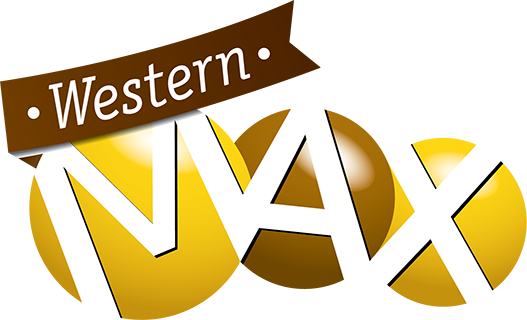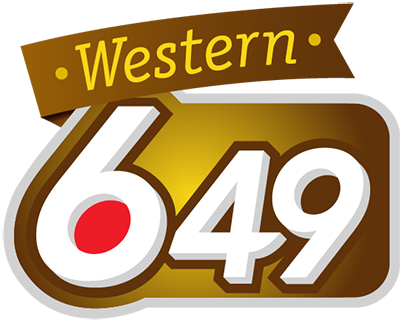How to Play SOKO Poker
Also known as Canadian Stud or Scandinavian Stud – SOKO is a variant of Five Card Stud, offering two additional hands: a four card straight and a four card flush.
 is abbreviation for Rules.
is abbreviation for Rules.
The SOKO Hand Rankings
- Royal flush
- Straight flush
- Four of a kind
- Full house
- Flush
- Straight
- Three of a kind
- Two pair
- Four card flush
- Four card straight
- One pair
- High card
Please note that SOKO introduces two new combinations compared to traditional hand rankings.
Four card straight is ranked above one pair and consists of any four cards of two or more suits in sequence of rank, and a fifth card that doesn't extend the sequence to a traditional five card straight.
Four card flush is ranked above four card straight and consists of four cards of the same suit and a fifth card of another suit.
Dealing the Game of SOKO
- Players will buy-in for the posted amount.
- Players will place an ante into the pot. Your ante will be placed into the pot by default. You may turn off this feature under the settings menu in the game.
The dealer always deals first to the player closest to the dealer's left and, moving clockwise around the table, will "deal-in" each player that has anted. The players will be dealt one card face down and then a second card known as the "door card" will be dealt face up. A round of betting will occur starting with the player with the highest card by value and suit. This is known as the "force" or "bring-in" bet.
 The player with the highest card value (ace being high) will be the force. In the event that two or more players hold door cards of the same rank, then the highest suit will determine the force. Suits are ranked, from highest to lowest, alphabetically, spades, hearts, diamonds, clubs (i.e., the two of clubs is the lowest possible card). This is the only time suits will play a role in the game.
The player with the highest card value (ace being high) will be the force. In the event that two or more players hold door cards of the same rank, then the highest suit will determine the force. Suits are ranked, from highest to lowest, alphabetically, spades, hearts, diamonds, clubs (i.e., the two of clubs is the lowest possible card). This is the only time suits will play a role in the game.

The next card to be dealt into the game will be the third card the players will receive in their hand. This is called "Third street." The dealer will burn one card off the top of the deck and then always deal to the player closest to the dealer's left and, moving clockwise around the table, will deal each player one card face up. A round of betting will occur starting with the player with the highest two-card value. This is known as "having the action".
 The player having the best hand on the board "has the action" and may make the initial bet of the round or check to the next player. If there is a tie between players as to the best hand, then the player closest to the dealer's left will have the action.
The player having the best hand on the board "has the action" and may make the initial bet of the round or check to the next player. If there is a tie between players as to the best hand, then the player closest to the dealer's left will have the action.
 In fixed limit stud, if any player displays an open pair on third street, that player may bet the higher amount of the game limit (normally not available until fourth street).
In fixed limit stud, if any player displays an open pair on third street, that player may bet the higher amount of the game limit (normally not available until fourth street).
 If the player with the action chooses to make the lower limit bet, any other player still in the hand may choose to make either the lower limit or higher limit raise. Once any player has made the higher limit bet, all further bets and raises must be made at the higher level.
If the player with the action chooses to make the lower limit bet, any other player still in the hand may choose to make either the lower limit or higher limit raise. Once any player has made the higher limit bet, all further bets and raises must be made at the higher level.
- If you choose not to bet, then you are said to "check," or pass on the option to bet to the next player.
- If a player bets, you may "call" the bet, "raise" or "fold".
- If a player checks and another player makes a bet, the player who checked may in turn raise the bet made by the other player. This is called a "check & raise".
The next card to be dealt into the game will be the fourth card the players will receive in their hand. This is called "Fourth street." The dealer will burn one card off the top of the deck and then always deal to the player closest to the dealer's left and, moving clockwise around the table will deal each player one card face up. A round of betting will occur starting with the player with the highest three-card value. Starting with Fourth street, and continuing through all further streets, all bets and raises in fixed limit games are made at the higher limit.
The next card to be dealt into the game will be the fifth and final card the players will receive in their hand. This is called "Fifth street". The dealer will burn one card off the top of the deck and then always deal to the player closest to the dealer's left and, moving clockwise around the table will deal each player one card face up. A round of betting will occur starting with the player with the highest four-card value. On Fifth street, all bets and raises in fixed limit games are made at the higher limit.
Who shows first?
In a live game, generally players who feel that they have a good opportunity to win a pot will show their hand voluntarily. However, in many instances, players all stare at each other wondering who will show their cards first. To avoid this situation, the game employs the following standard rule:
The determination of which players' cards will and must be shown first will lie with the player who had initiated the last bet, raise or re-raise.
This simply means that whoever created the last action on the Fifth Street must show his cards first. If the player who had the action checked and all players checked, then the player who had the initial option to bet would show first. If a player checks and another player bets, then the player who bet will have his/her cards shown first. If a player checks, another bets and then another player raises, the raiser's cards will be shown first.
Suppose a Player wins by default. Is the hand required to be shown?
 Players that have won a pot do not have to show their cards if they were not called.
Players that have won a pot do not have to show their cards if they were not called.
This means that if two or more players were playing and one player bets and the other player(s) fold, the player who has won the pot by default will not under any circumstances have their cards shown automatically. The winning players may choose to "show" or "don't show".
Do Players have to show their cards if they call a bet or a check on Fifth street?
 Players are required to show their cards if and only if they are the player who created the last action by betting or raising.
Players are required to show their cards if and only if they are the player who created the last action by betting or raising.
Please note: Players may set their play to "Muck Losing Hands" in the Menu>Settings. Muck Losing Hands - checked - will mean that any losing hand will automatically muck. Muck Losing Hands - unchecked - will mean that the player will be presented with the choice to muck or show when applicable.
Who wins?
 In the PlayNow.com poker room, "cards speak." That means the dealer will find the best five-card hand on the table and declare it the winner based on the above SOKO hand rankings.
In the PlayNow.com poker room, "cards speak." That means the dealer will find the best five-card hand on the table and declare it the winner based on the above SOKO hand rankings.
 It is theoretically possible that two or more players can hold the best five-card hand. If there is a tie between two or more players, then the dealer will "split" the pot equally between all the winning players.
It is theoretically possible that two or more players can hold the best five-card hand. If there is a tie between two or more players, then the dealer will "split" the pot equally between all the winning players.
SOKO Notable Rules
Most commonly called "fixed" limit games, this type of game limit structure is by far the most common betting structure you will find. A fixed limit game is one in which each bet will remain consistent through several betting rounds and then change at some predetermined point in later rounds. All bets will remain equal to the posted table limit. For example, in a $5-10 SOKO game, the bets will be as follows.
In the early betting rounds, a bet and any raises must be exactly $5. In later betting rounds, such as the last round, a bet and any raises must be exactly $10.
- Each bet in every betting round will be in strict compliance with a structured game.
- If you choose not to bet, then you are said to "check," or pass on the option to bet to the next player.
- If a player bets, you may "call" the bet or "fold".
- If a player checks and another player makes a bet, the player who checked may then in turn raise the bet made by the other player. This is called a "check & raise."

 The general poker rule is a "cap" of three raises allowed per betting round with three or more players. However, if there is a "heads up" situation whereby only two players remain in the game, then raises are unlimited.
The general poker rule is a "cap" of three raises allowed per betting round with three or more players. However, if there is a "heads up" situation whereby only two players remain in the game, then raises are unlimited.
- The opening round will be a force wager determined by the game limit. The player with the lowest "door card" is forced to wager the minimum or "complete" it to the lower limit of the game. This is not a raise in the traditional sense. The player is only "bringing up" the bet to its normal minimum.
- Third Street: The bet shall be the lower limit and all raises will be in the same increments only.
However, an exception occurs on Third Street when there is an open pair on the table. Any player may bet or raise the lower or higher limit of the game. This is called the "Third Street Rule."
- Fourth Street: The bet shall be the higher limit and all raises will be the same increments only.
- Fifth Street: The bet shall be the higher limit and all raises will be the same increments only.
![]() is abbreviation for Rules.
is abbreviation for Rules.![]() Players that have won a pot do not have to show their cards if they were not called.
Players that have won a pot do not have to show their cards if they were not called.![]() Players are required to show their cards if and only if they are the player who created the last action by betting or raising.
Players are required to show their cards if and only if they are the player who created the last action by betting or raising.![]() In the PlayNow.com poker room, "cards speak." That means the dealer will find the best five-card hand on the table and declare it the winner based on the above SOKO hand rankings.
In the PlayNow.com poker room, "cards speak." That means the dealer will find the best five-card hand on the table and declare it the winner based on the above SOKO hand rankings.![]() It is theoretically possible that two or more players can hold the best five-card hand. If there is a tie between two or more players, then the dealer will "split" the pot equally between all the winning players.
It is theoretically possible that two or more players can hold the best five-card hand. If there is a tie between two or more players, then the dealer will "split" the pot equally between all the winning players.










